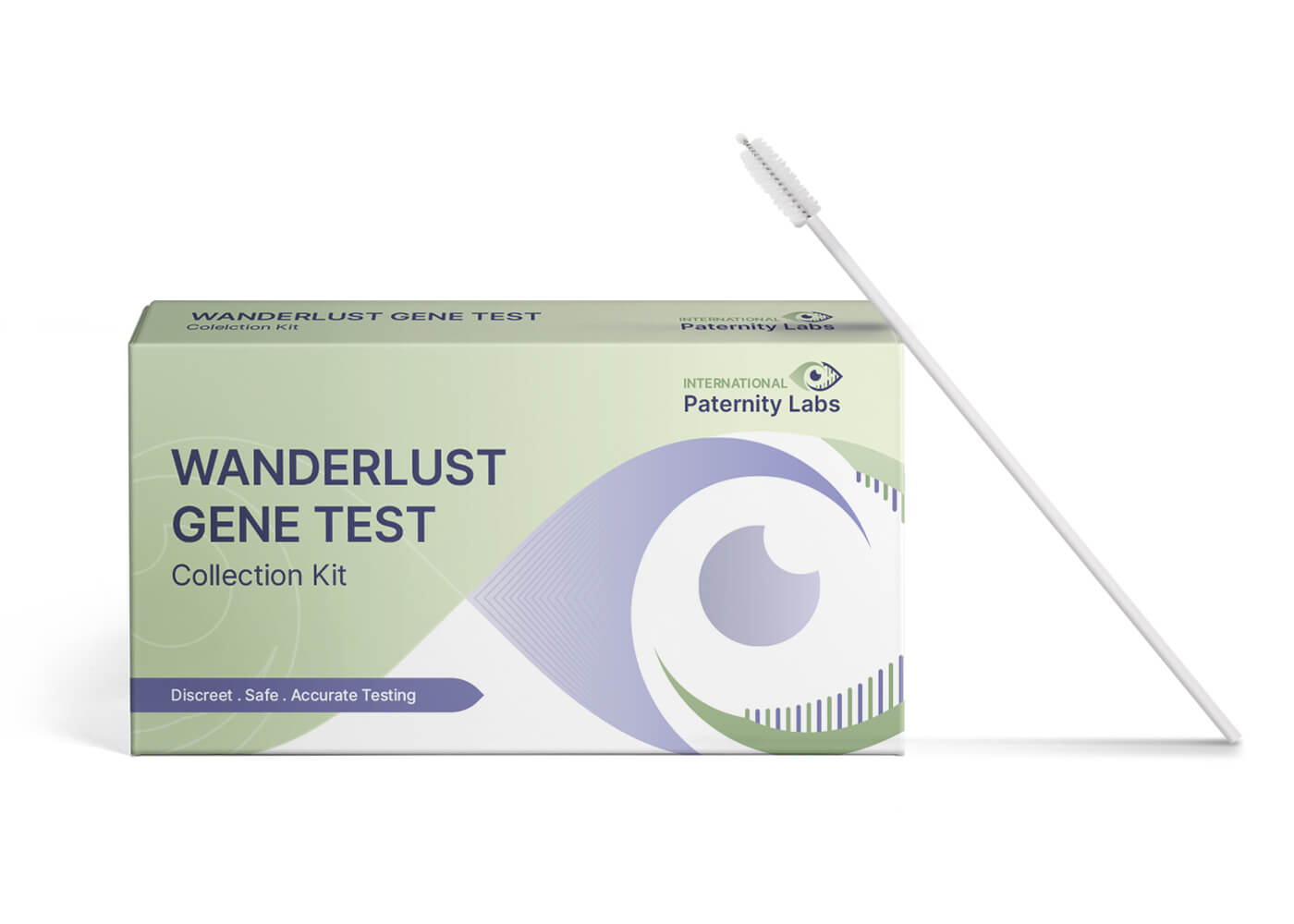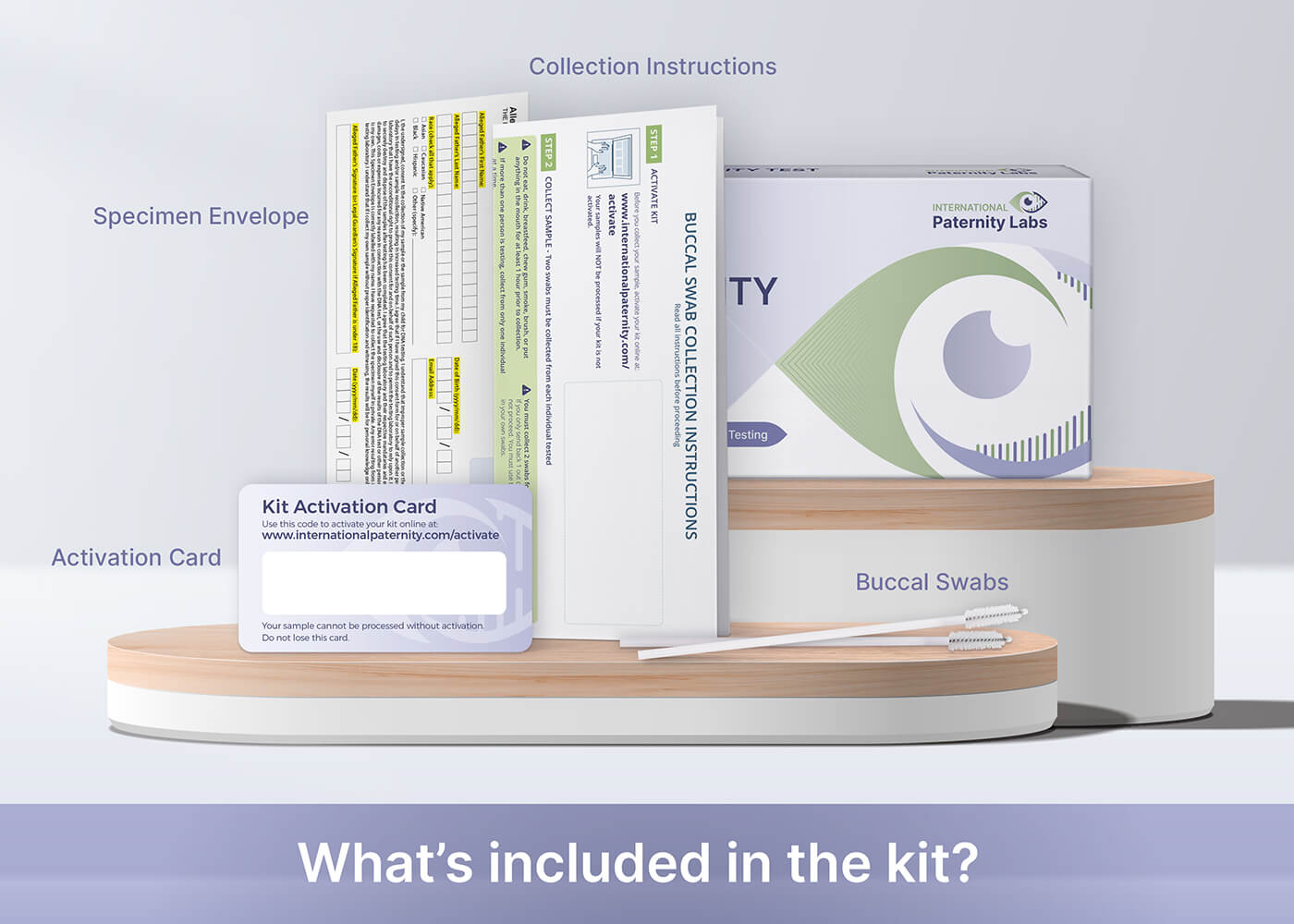Wanderlust Gene Test
Determine if thrill-seeking is encoded in your DNA by identifying the presence of the “wanderlust” version of the DRD4 gene.
- Simple buccal swab sample collection
- Discreet, Safe and Accurate
- Includes all laboratory fees
$149.00
DNA Tests

Order Your Confidential Home DNA Test Online!
About this test
Description
The “wanderlust” gene, a genetic variant of the DRD4 gene, is also recognized as the 7R+ version of the dopamine receptor.
Dopamine, a neurotransmitter or chemical produced in the brain, contributes to feelings of reward and pleasure. The dopamine receptor D4, encoded by the DRD4 gene, binds with dopamine and facilitates signal transmission into the cells.
The “wanderlust” variant of the DRD4 gene exhibits less efficient binding to dopamine compared to the common 4R version, resulting in reduced transmission of the dopamine “feel-good” signal in the brain.
Individuals with this variant require higher levels of dopamine to experience the same “feel-good” effects. They often elevate dopamine levels through novelty-seeking behaviors such as traveling, exploring, and engaging in sexual activity.
Are you inherently drawn to exploration? Do you find yourself daydreaming about venturing into uncharted territories or trying new experiences? Understanding more about your genetic composition can provide insights into your personality, aiding in better comprehension and planning of your lifestyle, including career directions and project choices aligned with your unique DNA.
Technical Specifications
The DRD4 gene is situated on chromosome 11, and individuals inherit two copies of this gene—one from each parent. This implies the possibility of inheriting either two identical copies (e.g., both 4R) or two distinct copies (e.g., 4R and 7R).
In the gene under examination, DNA variations often manifest in a 48-base pair repeat region, with the number of repeats ranging from 2 to 11.
The “wanderlust” DNA test precisely determines the length of the repeat region within the DRD4 gene, specifying the number of repeats at each copy. Inheriting at least one copy of the 7R+ allele, inclusive of 7R, 8R, 9R, 10R, and 11R, is associated with an increased propensity for travel, exploration, and the discovery of new foods, places, and people.
Approximately 20% of individuals worldwide carry the “wanderlust” gene, although its prevalence significantly varies among different ethnicities. It is infrequent in East and South Asian populations but common in the Americas.
100% Confidentiality
As our client, your privacy is extremely important to us, and we hold all information provided us in strict confidentiality. We will never sell, resell or make available your personal, or financial information to other companies or organizations. You will only be contacted using the method you choose, to confirm your order or to discuss your case. All communication is in the strictest confidence, and for that reason, we require you to create a password that will restrict access to your case. In addition, our privacy policies that have been established in our laboratory and offices safeguard the security of your case.




